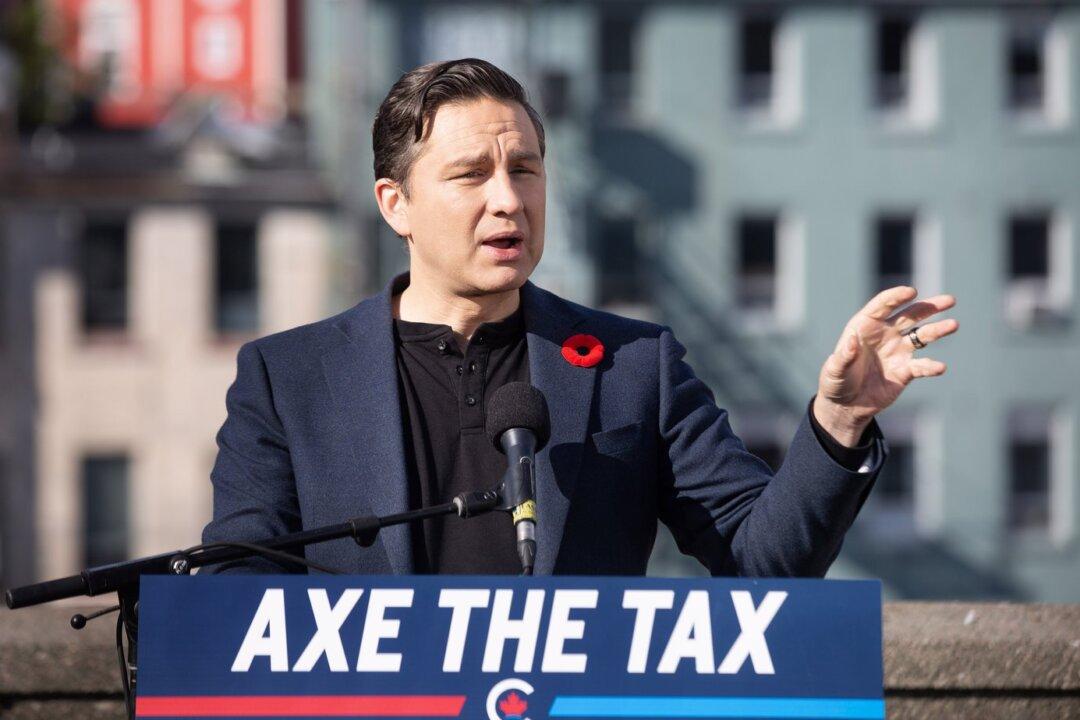Conservative Party Leader Pierre Poilievre has promised to “axe” the carbon tax, but in the meantime, he says the Liberal government should accept a compromise and pause the planned tax hikes in its fall economic statement.
Mr. Poilievre told reporters on Nov. 17 that his party has three demands as the government is about to provide a budget update next week.





